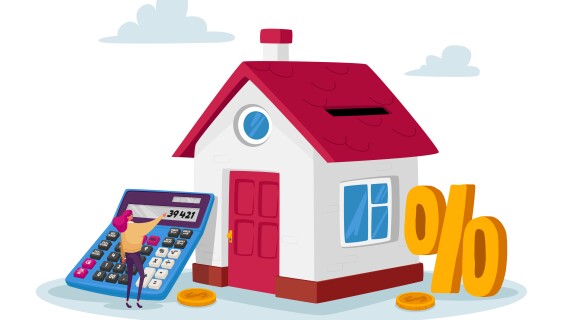Higher inventory levels, less competition for homes and more bargaining power for buyers are all helping make this more of a buyer’s market than we’ve seen in years.
But with rates at lofty levels, I’m looking down the road to when I can refinance my mortgage rate to a lower number.
And, if you’ve recently bought a home, you may be wondering when to refinance your mortgage as well.
Fannie Mae is predicting mortgage rates will be in the 5.9% range in 2026, and economists are expecting them to continue drifting lower into 2027.
Personally, I’m thinking it will probably be a couple of years before I refinance my mortgage.
[text_ad]
But having said that, as you can see from the following chart for a $300,000 mortgage, even a small drop in the interest rate can make a difference in your monthly payment.
| Mortgage Rate | Monthly Mortgage Payment (principal and interest) |
| 6.15% | $1,828 |
| 6.29% | $1,855 |
| 6.36% | $1,869 |
| 6.65% | $1,926 |
| 6.75% | $1,946 |
Source: Freddiemac.com
In addition to rates, there are a few other reasons that you may want to refinance your mortgage...
3 Reasons to Refinance Your Mortgage (Other Than Rates)
Moving from an ARM to a fixed loan will make your outflows steadier and less expensive.
Going from a 30-year to a 15-year loan so that you can build equity faster. However, unless the rate differential is great, it may make more sense to just increase your monthly principal payment so you can pay off your loan sooner and avoid refinancing costs.
Taking cash out. If you have significant equity in your home and need the money for something important—such as education or home improvements—refinancing may make sense.
The traditional thought was that refinancing was worth it if you:
- Could reduce your mortgage rate by 2%, and …
- Plan to stay in your home for five more years.
I personally think that still makes sense, for the most part, if you are refinancing strictly because of rates, but it never hurts to do the calculation to see just how much you can save. For instance, if rates fell to 5.5%, the above mortgage would fall to $1,703—no small bit of change!
But it’s important to know that refinancing your mortgage is usually not free. The cost is generally 3%-6% of your loan amount, and may include these items:
- Government recording costs
- Appraisal fees
- Credit report fees
- Lender origination fees
- Title services
- Tax service fees
- Survey fees
- Attorney fees
- Underwriting fees
You may find this refinancing costs calculator helpful.
To ensure that refinancing makes sense, add up the total costs of the refinance, then divide it by your potential monthly savings, as you see in the graphic above. That will give you the total number of months it will take until your monthly savings make up for the refinancing costs.
Note that this calculation won’t work for cash-out refinances or if you are refinancing to reduce the term of your loan.
And one last thing: When rates come down, don’t be surprised to see banks offering refinancing with no closing costs. If your lender doesn’t, ask them about it.
[author_ad]
Note: This post has been partially excerpted from a previous issue of Cabot Money Club Magazine. To learn more about the state of the housing market, refinancing, borrowing, renovation, and more, join Cabot Money Club today.


